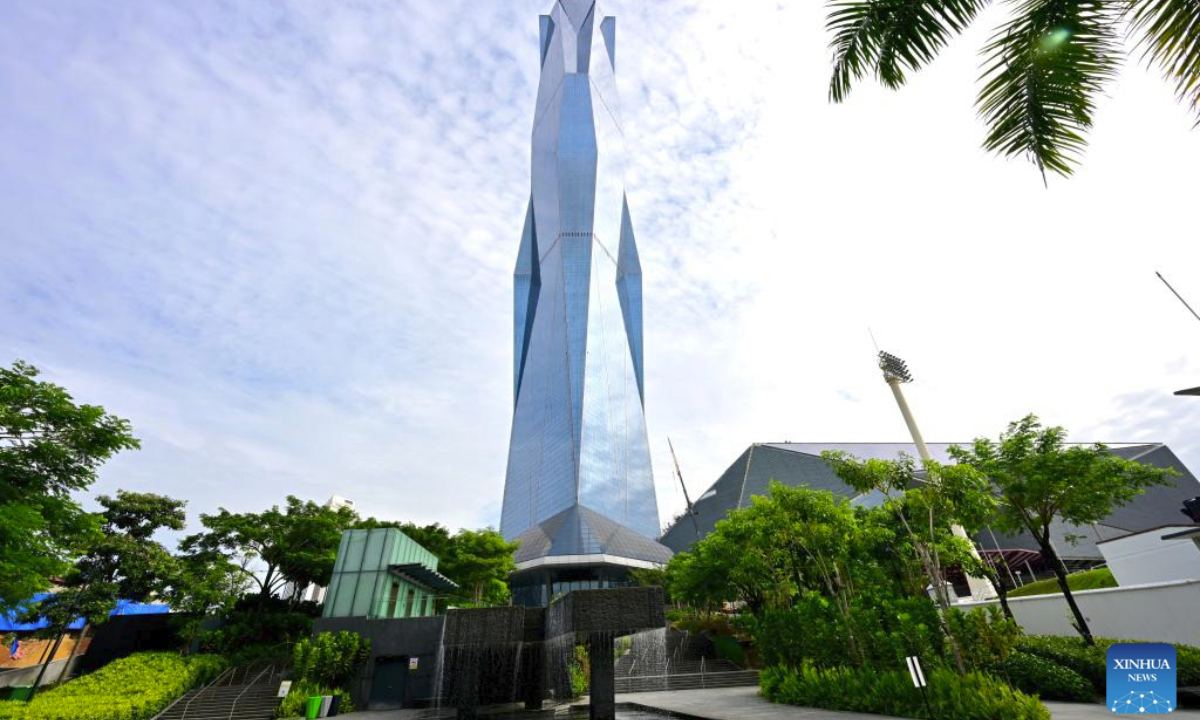The Chinese and US delegations began talks on economic and trade issues in Kuala Lumpur on Saturday morning, the Xinhua News Agency reported.
The Chinese delegation is led by Chinese Vice Premier He Lifeng, also a member of the Political Bureau of the Communist Party of China Central Committee.
Footage aired by media outlets on Saturday showed that the Chinese delegation, including Vice Commerce Minister Li Chenggang, entering Kuala Lumpur’s Merdeka 118 building, a landmark skyscraper that served as the venue for the trade talks.
US Treasury Secretary Scott Bessent and US Trade Representative Jamieson Greer represent the US side, according to Reuters.
Although few details are available on Saturday as the trade talks started, global media outlets have been closely following the meeting.
CNBC reported that negotiators may focus on designing a “strategic pause,” which might include limited tariff relief. The fact that the negotiations are being held in Kuala Lumpur highlights the broader regional implications as both powers rely heavily on Southeast Asia as a supply-chain hub, CNBC reported.
Reuters reported that the two countries “seek to avoid a trade war escalation” while the Financial Times described the trade talks as high-stakes, coming just before the APEC summit and following weeks of mounting tensions between the world’s largest economies.
Chen Fengying, a research fellow at the Beijing-based China Institutes of Contemporary International Relations, told the Global Times on Saturday that, while it is normal for China and the US to hold differing views as the world’s two major powers, reaching agreements on a range of issues – from US export controls to Chinese rare earth supplies – would benefit both countries and the world.
Earlier, a spokesperson for China’s Ministry of Commerce said in a statement on Thursday that the two sides would hold consultations on key issues in China-US economic and trade relations in line with the important consensus reached by the heads of state of the two countries during their phone calls this year.
The Kuala Lumpur meeting follows earlier trade talks between Chinese and US delegations held in Madrid in September, Stockholm in July, London in June, and Geneva in May.
Following the Madrid talks, the US introduced a series of unilateral restrictive measures against China, such as expanding the scope of control over businesses with the “Affiliates Rule” and persisting with the implementation of Section 301 measures targeting China’s maritime, logistics and shipbuilding sectors. These measures have seriously harmed Chinese interests and undermined the atmosphere of bilateral economic and trade talks, a spokesperson from MOFCOM said on October 12.
“In response to the US escalating measures, China has recently struck back, but the two sides can always engage in dialogue on the basis of equality and mutual benefit,” Chen said, adding that China won’t succumb to US pressure after years of self-strengthening and has established a firm footing to face down US threats.




